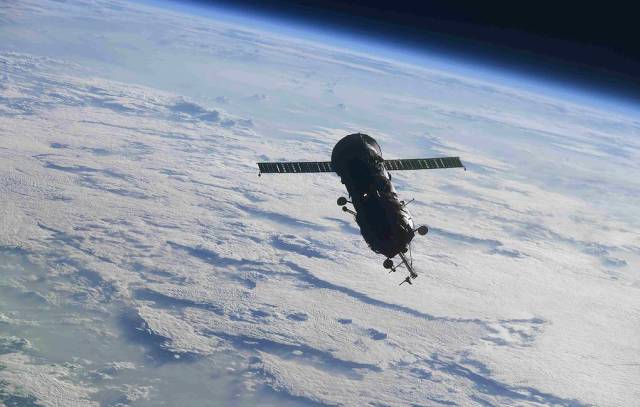Roscosmos reported that it will move away from the ISS at a distance of up to 185 km
MOSCOW, October 14. /TASS/. The Progress MS-17 cargo ship will be reconnected from the Search module to the Science module. He will spend 29 hours in an autonomous flight, Roscosmos said in a statement released on Thursday.
"The separation of the Progress MS-17 spacecraft from the docking node of the small research module, scheduled for 02:41 Moscow time [October 21] on command from Earth, will take place over the boundless steppes of Mongolia. After undocking, the ship will depart from the station and hover in anticipation of the calculated ballistic conditions for docking with Nauka," the message says.
According to Roscosmos, Progress will be in autonomous flight for 29 hours, performing a series of corrective maneuvers. It will move away from the ISS at a distance of up to 185 km. "The docking of the ship with the nadir port of the hermoadapter of the Nauka module is scheduled for October 22 at 07:31 Moscow time using the Kurs automatic approach and docking system," the message says.
It is assumed that the re-docking operation will take place automatically under the control of astronauts on board the ISS and specialists of the Main Operational Mission Control Group of the Russian segment of the ISS (Rocket and Space Corporation Energia). The maneuver will be held to prepare the Nauka module for the reception of the new Berth node module. "The Progress MS-17 cargo ship should finally leave the ISS and descend from orbit immediately before the launch of the Progress M-UM module transport vehicle with the Berth node module," Roscosmos clarified.
Earlier, Roscosmos CEO Dmitry Rogozin announced that the launch of the node module is scheduled for November 24. According to him, the "Berth" will expand the possibilities of docking with the station of Russian ships, including the new lunar ship "Eagle".
The node module should dock to the multipurpose laboratory module "Science", which docked to the ISS on July 29. Earlier, the General Director of Roscosmos told reporters at the Mission Control Center that the state commission will analyze the problems that arose during the launch of the Nauka module and take them into account during the autumn launch of the node module.

